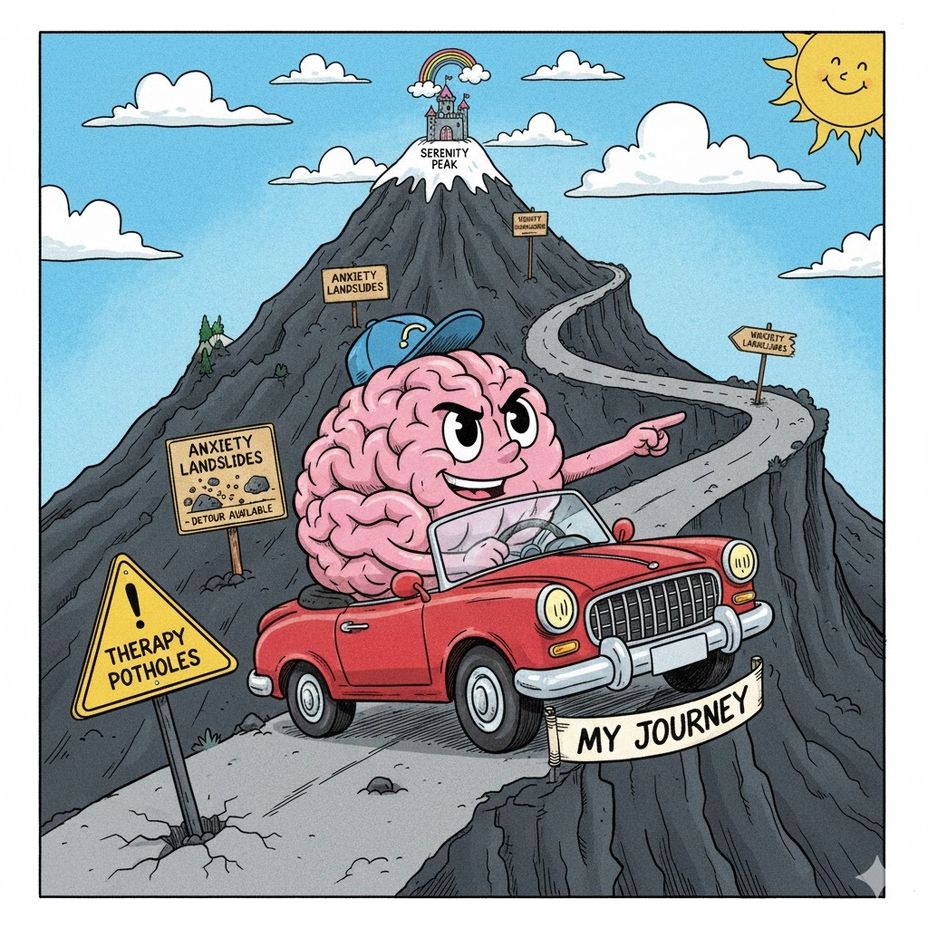How My Life Fell Apart — And Why I’m Finally Telling the Story
This is the first full chapter of my life story. I'm sharing it not to seek pity, but because I know what it's like to feel completely alone. If even one person sees themselves in my words, then writing this is worth it.
I am not going to spend weeks or even days going into why I am here today. The first post is going to be an intro into how my childhood went, where my life went wrong and give you some tidbits of what to expect in my stories going forward. So here it is, this is my life in a very short story.
Let me start by saying, I am no writer. At times, my grammar will confuse you and my spelling will likely scare you. Heck, sometimes I might even ramble, like I am right now. But I promise you one thing, I will always be genuine. I want to help you by sharing. I will never use AI to write stories for me or to edit my work. I am just a 40 year old average guy who has been dealt a below average life of chronic illness, anxiety, OCD and severe depression. I have spent most of it hiding away from the world out of anger. Now I want to come out of my hiding to give back to those like me. So let me start out at the beginning.
I was born in Quebec. And no, I don't speak French. Be happy for that. My family moved to Ontario when I was 6, so please don't hate on me for not learning! My childhood was one of a mixed bag. On one hand, I had a mother who loved me, but was timid and soft spoken. Then you had my oversized father, the chronic gambler with a hair trigger of a temper. Some weekends, he would be cheering me on for the homeruns I hit. The next, he would be destroying our home out of anger because of the balls I missed. I never saw him much as a kid. I would go to school and when I came home, he would go out to gamble. I had some good moments with my dad when he wasn't gambling, but that wasn't very often. My dad had three kids, myself, my sister and his favorite, the bingo hall. Let's just say he is the reason for a lot of my issues, but lets not give him that much time or credit today. To sum up my childhood. My sister and I were not close. She moved out at the age of 16. I moved out at the age of 17. That alone should be enough of a teaser to tell you that I have many more stories to come. Hopefully you can relate to them. But for now, lets move onto the next stage of my life.
I move out at 17, scared and broke. I move into the worst building in the worst area, as this is all I can afford. This leads to stories of police raids, cockroaches, fleas and basically the plague all over again. It was a terrible experience, but I was safe and out of my home environment. Well, safe if you don't count the rodents, insects and drug addicts that constantly felt like my home was a shared space. I went on to survive on my own with multiple jobs and completed college as a Computer Programmer in 2007. I fell in love and moved to Toronto. I started my career as a Systems Analyst at a large Canadian Bank. I bought my first house at age 21 and was engaged in the same year. Life was flying by and I was loving it. Then, as almost a way of god telling me to slow down, he put a huge stop sign in front of me.
About two months after buying my house. And yes, this was before you had to sell a kidney just to afford a shed that needs $1 million in repairs. Those two months were the best of my life, but I barely remember them. From this point on, I kept passing out and hitting my head. I suffered over ten concussions during the next two years. Eventually I had to go on a feeding tube because I dropped from 170lbs down to 90lbs. I am 6'10" just for reference. Ok Ok, I am 5'10", I did say no lies. Still, that is not much weight for my size. The feeding tube lasted over a year and I also spent six months in and out of the hospital due to sepsis and other complications. I will have many details to come, but here are the main facts. I was diagnosed with Refractory Celiac Disease Type 1 which basically means I have to eat GF, but will not get better without long term steroid use, which has killed my body. I was then diagnosed with Addison's Disease (look up JFK for a celebrity match) and Hypopituitary due to head injuries. I had a pacemaker put in during my early 20's due to heart sinus node failure. I suffer severe migraines due to long term post concussion issues. Through this he** on earth, I developed severe depression, anxiety, OCD, and complete social shut down. My fiancé left me in 2013 while I was in the hospital. I came out to an empty home. On Sept 14, 2013, I lost my fiancé, my career, my house, my pets and my purpose in life. I moved back home to live with my parents that the same month. I sold my house and cut ties to any glimpse of my old world. It was on this very day that I stopped living.
That leads me to where I am today. Since 2013 I have lived a stagnant life. The only thing that has changed is my health and my medication list. I am now taking ten medications and five injections monthly to keep me alive. The more I cut off my friends and the world, the worse I become. I spent the last 12 years living in a 10" x 10" bedroom, just surviving. I have been to the lowest points of the earth and back. I have felt alone and scared. I have stories that haunt me and one that make me smile. I want to share them with the world. I don't want anybody to go through what I went though. I don't want anybody to feel like they are alone. I want everyone reading my stories to know that we all deserve to be more than just alive, we deserve to be happy. I hope I can also take back from my listeners and to continue learning. I need you as much as you need me. Let's go on this journey together.
With all my love and support,
Adam
*** My blogs are meant to just give a glimpse into the life of somebody who has been held back by mental health his whole life. It is not here for medical advice. It is only here for you to read and hopefully relate to. If you have any questions, I am always here. As always. You deserve more than just a life, you deserve a happy one. ***



